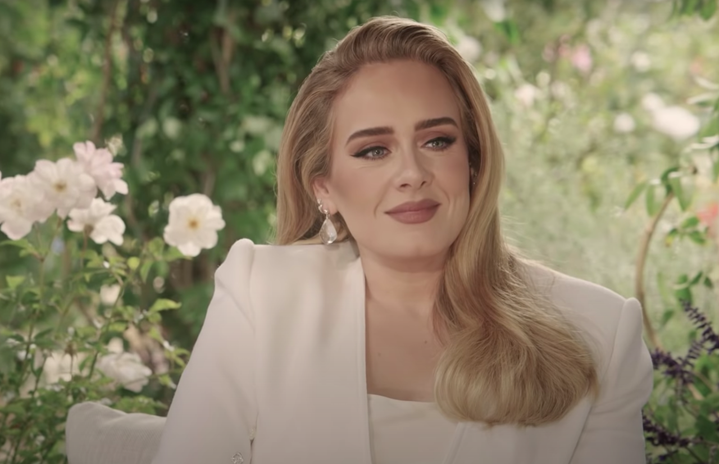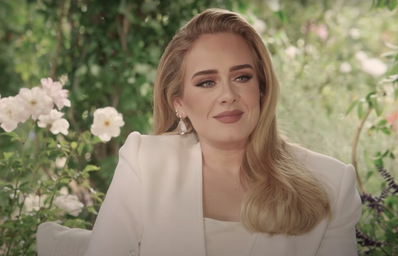Vulnerability is a word that is thrown around quite liberally these days. People like to talk about it, but it’s another thing to actually be it. In most cases we’ve been raised by a society that tells us to hide our true selves to protect ourselves from potential shame and ridicule. Contrary to what society has been drilling down into our moldable brains for centuries now, the new trend is to “be honest” and “speak your truth.” But what does that look like? How can you pick out the pure people among all the posers? Here’s a hint: the pure of heart expose themselves completely out of love, which takes precedence over shame. English singer-songwriter Adele Adkins bares her heart and soul on her new album, 30, which explores her recent divorce and all of the feelings that come along with it. Poignant lyrics, fragile voice memos and haunting melodies bathe vulnerability in a bright new light.
Adele has always been known for her heartbreaking lyrics and knockout vocals, but there is something about her newest album that feels almost visceral; you can audibly hear her anxiety and grief. It has a bite to it that’s almost jarring. Everyone knows divorce isn’t fun. It’s often perceived as the ending of love, a poison that separates families, a real crying shame. Nobody really talks about it; we just know it exists. All we’re told is that 50% of marriages end in divorce. All we see is a statistic. But what we don’t see is what happens behind closed doors: the tears, the jeers or the deeply sowed fears. Adele practically wiped herself from the public eye for 6 years. I remember actually starting to wonder what had happened to her, until seemingly out of nowhere she drops this album that so vividly explains where she’s been all this time. She paints a picture of what her divorce looked, felt, sounded and tasted like. It looked like “a ride that [she] want[ed] to get off.” It felt like “the road [she was] on might just open up and swallow [her] whole.” It sounded like “drowning in silence.” It tasted like “soaking up wine.”
As a daughter of separated parents, I feel so deeply seen by this album. One of my deepest fears has always been that I would follow in my parents’ footsteps and have my future marriage crumble, leaving my future children to swim in its wake. Too messy. Too complex. Too painful. But what Adele’s album reminds me of is that the all-too-familiar rawness of pain is what makes us stronger people. Divorce is an act of strength, not weakness. The fact that Adele made a roaringly successful album from it only proves my point.
The song on the album that felt the most vulnerable to me was “My Little Love.” It features recordings of bedside chats between Adele and her little boy, Angelo, where the singer tries to explain the big scary adult feelings she’s been having. The song’s outro is a voice memo documenting her fragile mental state shortly after her divorce. It was never going to be a “Hot 100” or a hit song, but that was never her goal. When one bares one’s soul in all its cracked and mishappen glory, it will soften the hearts of some and harden the hearts of others. Adele wrote this song for her son, and anyone else who’s been through a divorce, either as a child or a parent, to convey an honest, holistic depiction of divorce. It takes strength to leave. It takes bravery to grieve. It takes compassion to forgive and patience to heal. It takes resilience to love all over again.
For better or for worse, my parents’ separation has shaped me into the person I am today. I like to think it’s made me a more resilient and empathetic human. I like to think it’s empowered me to be vulnerable with the people I love. Listening to Adele’s album, 30, has shown me that while divorce is a difficult thing to go through, shrouding it in fear and shame only makes things worse. Exposing our messes to the light of day makes them real, yes, but in doing so we begin to heal. Sometimes it takes sharing your struggles with the entire world to realize you’re not alone.


